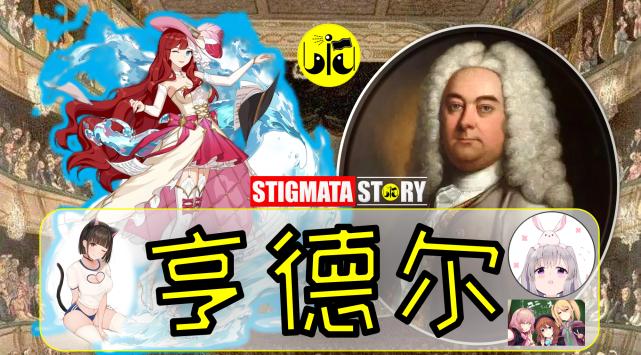Welcome to the New Issue 1 Of Scar Stories.
On the evening of April 21, 1749, a grand fireworks music premiered in Vauxhall Park in London, and a total of 12,000 spectators enjoyed the sound and light feast, and an elderly man in his sixties was very satisfied with the effect of the performance.
He is the German-British music master Handel.

If you don't know much about this big guy, it's normal.
Because in that splendid and slightly pretentious Baroque era, Handel's most famous works were mainly (Italian)operas. For most people in China, the concept of "opera" is too far away — even farther than the alarm clock that wakes you up in the early morning of winter.
Georg Friedrich Handel was born on 23 February 1685 in the Holy Roman Empire.
Similar to other music giants who rose to prominence at an early age as a schoolboy, Handel discovered the antique piano in his home at the age of 6 and began to teach himself.
The appearance of a piano in the original painting of the middle (sacred mark) should be related to it, but the ancient piano is still very different from the modern three-legged piano, as you know.
At the age of 7, Handel showed a musical talent that was particularly appreciated by the nobles of the Saxon court, after which he began to receive systematic musical education, and at the age of 17, he had already published 2 operas.
In 1712, at the age of 27, Handel came to England, after which he gradually settled and became a naturalized Englishman.
Handel composed a wide variety of musical genres during his lifetime, involving operas, sonatas, organ pieces and other religious music, and more than 100 works have survived to the present day – about 41 operas, 5 odes, 5 coronation hymns, 37 sonatas, 20 organ pieces, and many papal music and musical sketches.
In addition to his status as a musician, Handel has also served as music conductor and artistic director like The Upper Standing Painting, founded an opera company (opera house), and held several important positions such as CEO, CFO, CMO, CTO and so on.
This made me suspect that the opera house was seriously short of professionals.
Among Handel's many (non-opera) works, the most representative are "Water Music", "Royal Fireworks" and "Messiah".
The orchestral suite "Music on the Water", (supposedly) was born in 1715.
According to legend, this was "tailor-made" by Handel for king George I of England to hold a concert on the River Thames, and on July 17, 1717, George I and the nobles took a royal barge along the river, and a boat next to it was full of musicians, so the orchestra that was played for nearly an hour at that time was called "Water Music".
It is said that the whole song is composed of 20 small songs, and the effect lasts for 20 seconds is a coincidence.
By the way, Baroque is still a conservative era after all, if anyone really wears garters like this, it is basically flaunting "fornication".
The large-scale oratorio "Messiah" (meaning "Savior"), composed in 1741, is a very famous religious music, and the well-known "Hallelujah", "The Slaughtered Lamb Is Worthy of Authority" and "Amen" are all from this two-and-a-half-hour masterpiece.
It should be emphasized that the most significant difference between oratorio and opera is that it has no sets, costumes and (exaggerated) movements, but is purely musical.